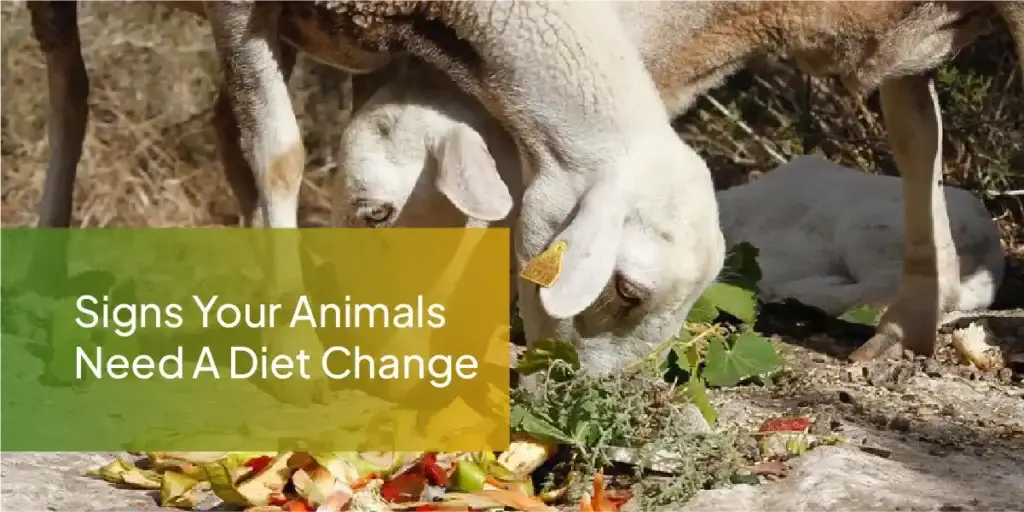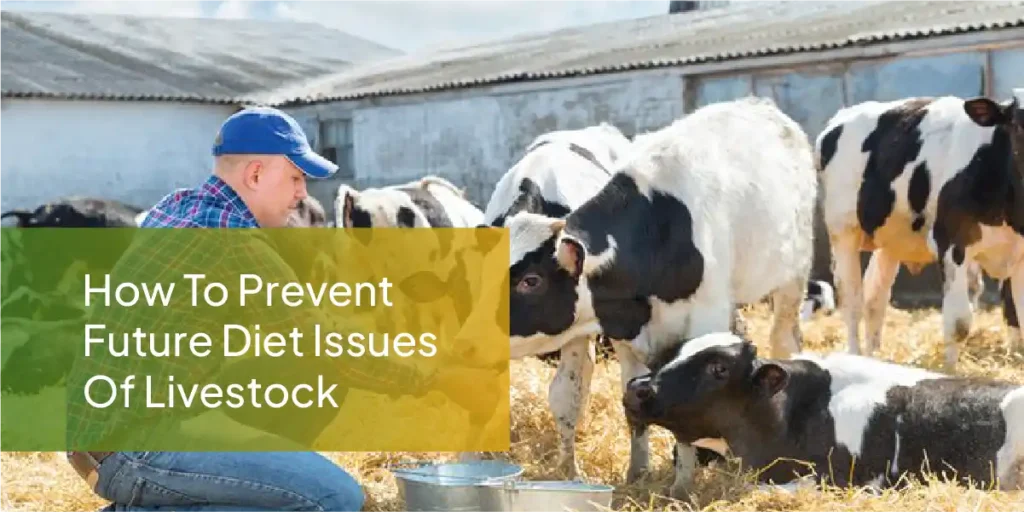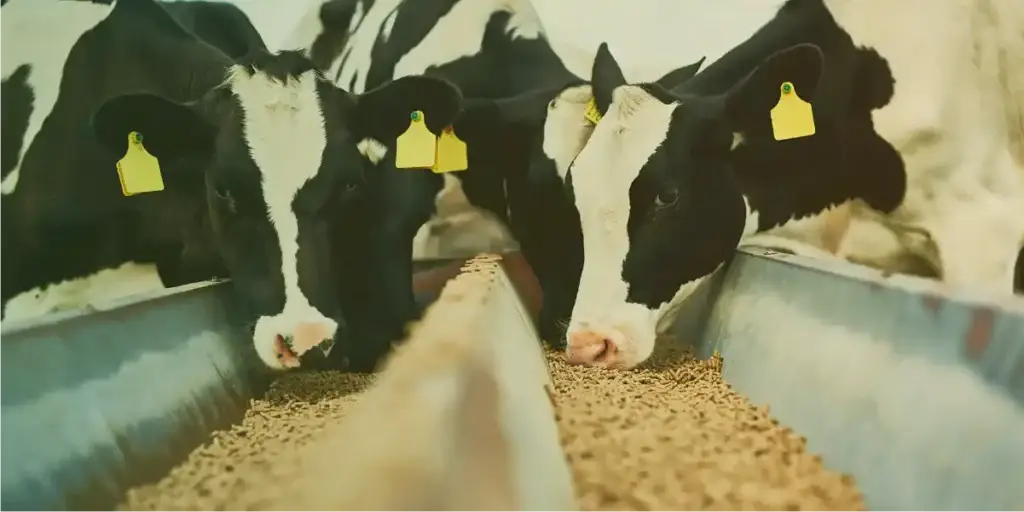Providing proper nutrition is essential for the health, productivity, and well-being of your livestock. However, dietary needs can change over time due to age, health conditions, or seasonal demands. Recognizing the signs that your livestock needs a change in diet is crucial for maintaining their performance and avoiding potential health issues. In this blog, we’ll discuss the key indicators and how to address them effectively.
Why Diet Changes are Necessary
A balanced diet ensures that livestock receives all the essential nutrients needed for growth, reproduction, and production. Over time, factors such as changing environmental conditions, growth stages, or evolving health needs may require adjustments to their feed. Ignoring these changes can lead to malnutrition, reduced productivity, and even disease. For instance, a dairy cow’s nutritional needs during peak lactation differ significantly from those of a cow in its dry period. Similarly, poultry may require additional protein during molting seasons to maintain feather health.
Dietary adjustments are also critical during extreme weather conditions. In cold climates, livestock may need more energy-dense feeds to maintain body heat, while in hotter regions, high-moisture or easily digestible feeds can prevent dehydration and digestive stress. Understanding these shifts and acting promptly can make a significant difference in your livestock’s overall health and productivity.
Key Signs Your Livestock Needs a Diet Change

1. Weight Loss or Poor Weight Gain
One of the most noticeable signs is a sudden drop in weight or a failure to gain weight despite adequate feed intake. This could indicate:
- Insufficient calorie intake, leading to energy deficits.
- Low-quality feed lacking essential nutrients necessary for growth.
- Digestive issues preventing the absorption of nutrients, often caused by poor feed quality or underlying health problems.
Addressing this issue requires an evaluation of your livestock’s caloric needs based on their activity levels and production goals. Providing energy-dense feeds like grains or protein supplements can help meet these requirements. Additionally, consider consulting a veterinarian if weight loss persists, as it could be indicative of health issues beyond diet.
2. Changes in Coat or Skin Condition
A dull, brittle coat or dry, flaky skin often signals nutritional deficiencies. For example:
- Vitamin A deficiency can lead to rough, patchy coats and a lackluster appearance.
- Zinc deficiency may result in flaky skin, slow healing wounds, and increased susceptibility to infections.
Introducing a mineral-rich supplement can resolve these issues and restore a healthy coat. Ensuring that your feed includes omega-3 fatty acids can also improve skin hydration and shine, particularly in grazing animals like cattle and goats.
3. Decline in Productivity
A sudden drop in productivity, whether in milk production for dairy animals, egg yields in poultry, or weight gain in meat animals, is a clear indicator of dietary inadequacy. This decline often stems from insufficient protein, energy, or specific vitamins in their feed. For instance, low calcium levels can significantly affect egg production in poultry, while inadequate protein levels can slow muscle development in livestock raised for meat.
Addressing productivity issues requires a targeted approach. Adding supplements rich in protein, calcium, or other essential nutrients can help restore output levels. Additionally, switching to high-quality feed tailored to the livestock’s specific production stage can yield immediate improvements.
4. Digestive Problems
Loose stools, bloating, or excessive gas can indicate a problem with the diet. These symptoms may arise from:
- Low fiber content in the feed, which is crucial for ruminants like cows and goats.
- Overfeeding energy-rich diets, causing digestive imbalances and acidosis.
- Poor-quality feed contaminated with mold or toxins, leading to gastrointestinal distress.
Increasing fiber content through high-quality forages or balanced feed formulations can alleviate these issues. Regularly inspecting feed for signs of spoilage or contamination is also critical for preventing digestive problems.
5. Behavioral Changes
Restlessness, aggression, or lethargy can be linked to poor nutrition. Livestock may also develop unusual eating behaviors, such as chewing on non-food items like wood or dirt, often pointing to a mineral deficiency or imbalanced diet. Behavioral changes can also indicate stress caused by inadequate feed availability or poor palatability of the current feed.
Steps to Address Livestock Diet Issues
If you observe any of these signs, it’s important to take action immediately:
- Assess Their Current Diet: Evaluate the quality, quantity, and balance of nutrients in their feed. Check for nutrient imbalances and the presence of fillers or contaminants.
- Consult a Nutritionist: Work with an animal nutritionist to identify deficiencies and create a tailored feeding plan that aligns with your livestock’s specific needs and production goals.
- Introduce Supplements: Add vitamin and mineral supplements to address specific deficiencies. For instance, calcium supplements for poultry or protein boosters for cattle can resolve productivity and health issues.
- Ensure Feed Quality: Switch to premium-quality feed from trusted suppliers like Green Gold Natural Products to avoid contamination and improve nutritional value.
- Monitor Progress: Track changes in weight, coat condition, productivity, and behavior to ensure the new diet is effective. Regularly reviewing feed plans and making necessary adjustments ensures sustained improvements.
Preventing Future Diet Issues

Regular monitoring and proactive management can help prevent future dietary problems. Follow these tips to keep your livestock healthy:
- Routine Nutritional Checkups: Schedule periodic evaluations of your livestock’s diet to ensure it remains balanced and aligned with their needs.
- Adjust for Seasons: Modify feed during extreme weather conditions to meet changing energy requirements. For instance, adding extra fat content in winter or focusing on hydration-friendly feeds during summer can prevent seasonal diet stress.
- Invest in High-Quality Feed: Opt for balanced and nutrient-rich feeds from reputable suppliers. High-quality feed minimizes health risks and promotes consistent productivity.
- Educate Your Team: Train farm workers to recognize early signs of dietary issues, enabling faster intervention and reducing the risk of long-term health problems.
Conclusion
Recognizing the signs that your livestock needs a change in diet is critical for maintaining their health and productivity. By identifying issues early and implementing a strategic feeding plan, you can ensure your animals thrive. Regular monitoring and adjustments based on specific needs and environmental conditions will help you achieve optimal results.
At Green Gold Natural Products, we provide high-quality feed solutions tailored to the unique needs of your livestock. Our commitment to quality and innovation ensures your animals receive the nutrition they need to excel. Contact us today to learn how we can support your farm’s success with premium, balanced nutrition.


